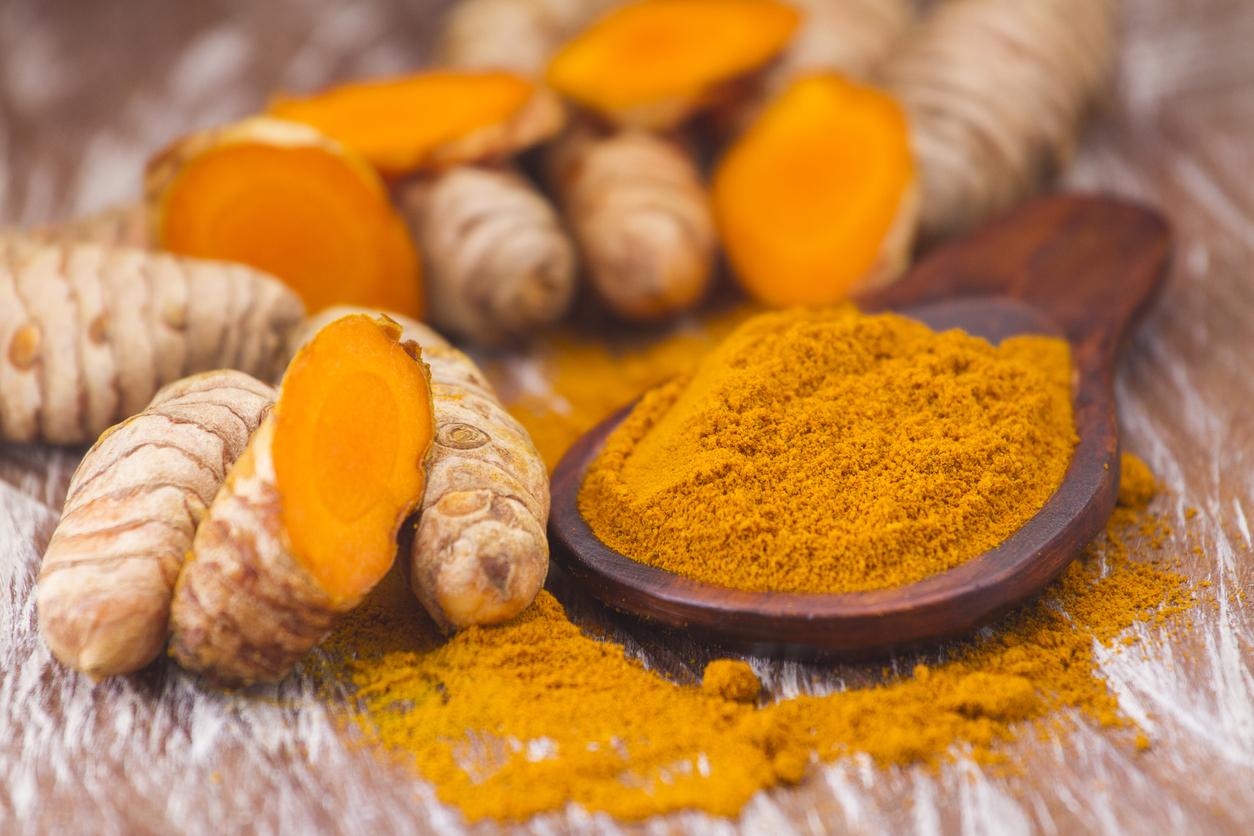
May 23, 2006 – Turmeric, an Indian spice, could be a new ally in the treatment of brain cancer. This is what Marie-Claude Perry from the University of Quebec in Montreal (UQAM) argues, who presented the results of her master’s work.1 as part of the congress of the Association francophone pour le savoir (ACFAS)2.
Brain cancer is often difficult to treat. Chemotherapy has indeed limited effects due to a unique means of defense in the brain: the blood-brain barrier. This barrier erected between the blood and the brain protects the latter against unwanted molecules, in particular thanks to a protein which is responsible, in a way, to guide intruders back to the exit. This protein is called P-gp (P-glycoprotein).
The problem is that not only do brain cancer cells manage to settle down without alerting the P-gps, but they activate their production. They use it to push back chemotherapy drugs to the barrier between the blood and the brain.
However, turmeric comes to neutralize the effect of rejection operated by P-gp. This action facilitates the passage of a greater concentration of chemotherapy drugs and their absorption by cancer cells.
In addition to promoting the action of chemotherapy, turmeric slows the growth of cancer cells to the point where they absorb more drugs, over a longer period of time. Turmeric is also said to have a beneficial effect on the immune system.
These observations were made in mice with brain tumors implanted.
The dose used in mice is equivalent, in humans, to a daily consumption of 2 g of turmeric per day. This amount is difficult to achieve even if it is not recommended: 8 g per day for a few months did not cause any harmful effects.
We intend to validate the synergistic effect of turmeric with other products, including pepper. One of the co-authors of this study is none other than the biochemist Richard Béliveau3, who has already established that pepper increases the absorption of turmeric by a thousand.
Adding pepper to turmeric would reduce the dose needed to 1 teaspoon per day for optimal results in cancer treatment, according to researcher Marie-Claude Perry.
Martin LaSalle – PasseportSanté.net
1. Perry MC, Demeule M, Béliveau R, Anti-cancer potential of turmeric in the treatment of brain tumors.
2. The 74e ACFAS congress took place from May 15 to 19, 2006, in Montreal, under the theme Knowledge weaves of modernity: www.acfas.ca [consulté le 23 mai 2006].
3. Richard Béliveau is Director of the Molecular Biology Laboratory at the Charles-Bruneau Cancer Center at Sainte-Justine Hospital in Montreal, and Full Professor of Biochemistry at UQAM. He is also the author of the bestselling bookstore Foods for cancer published by Éditions du Trécarré.















